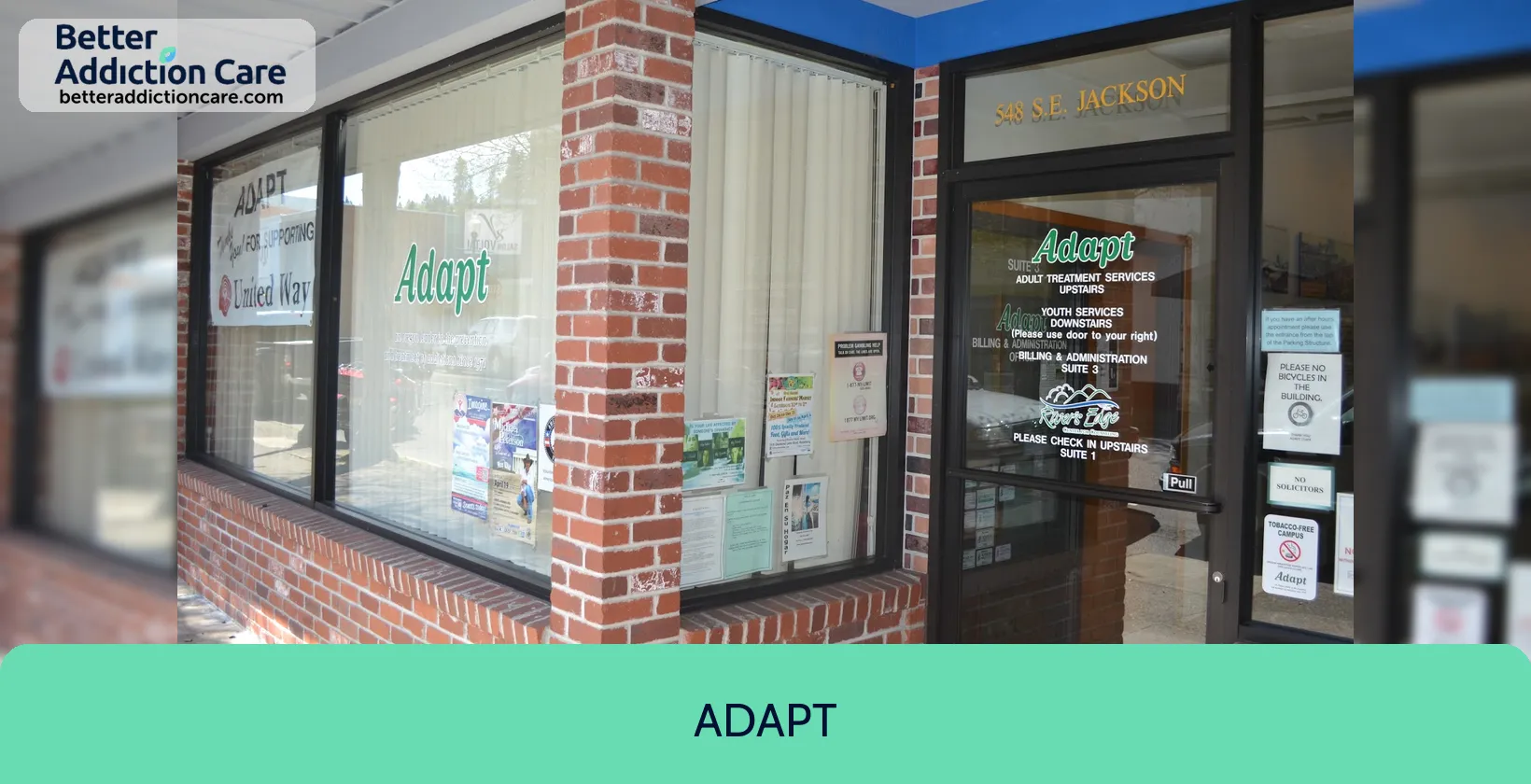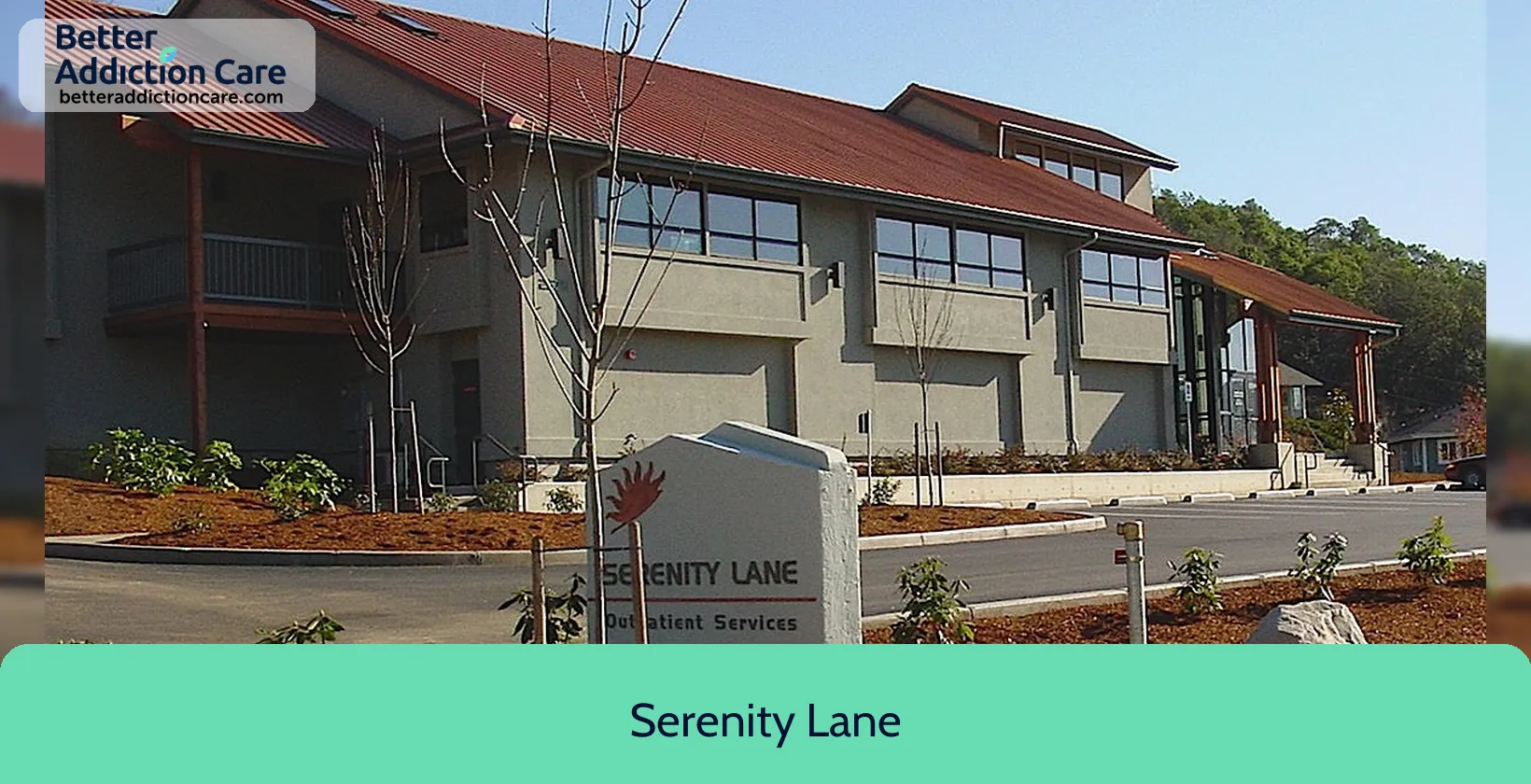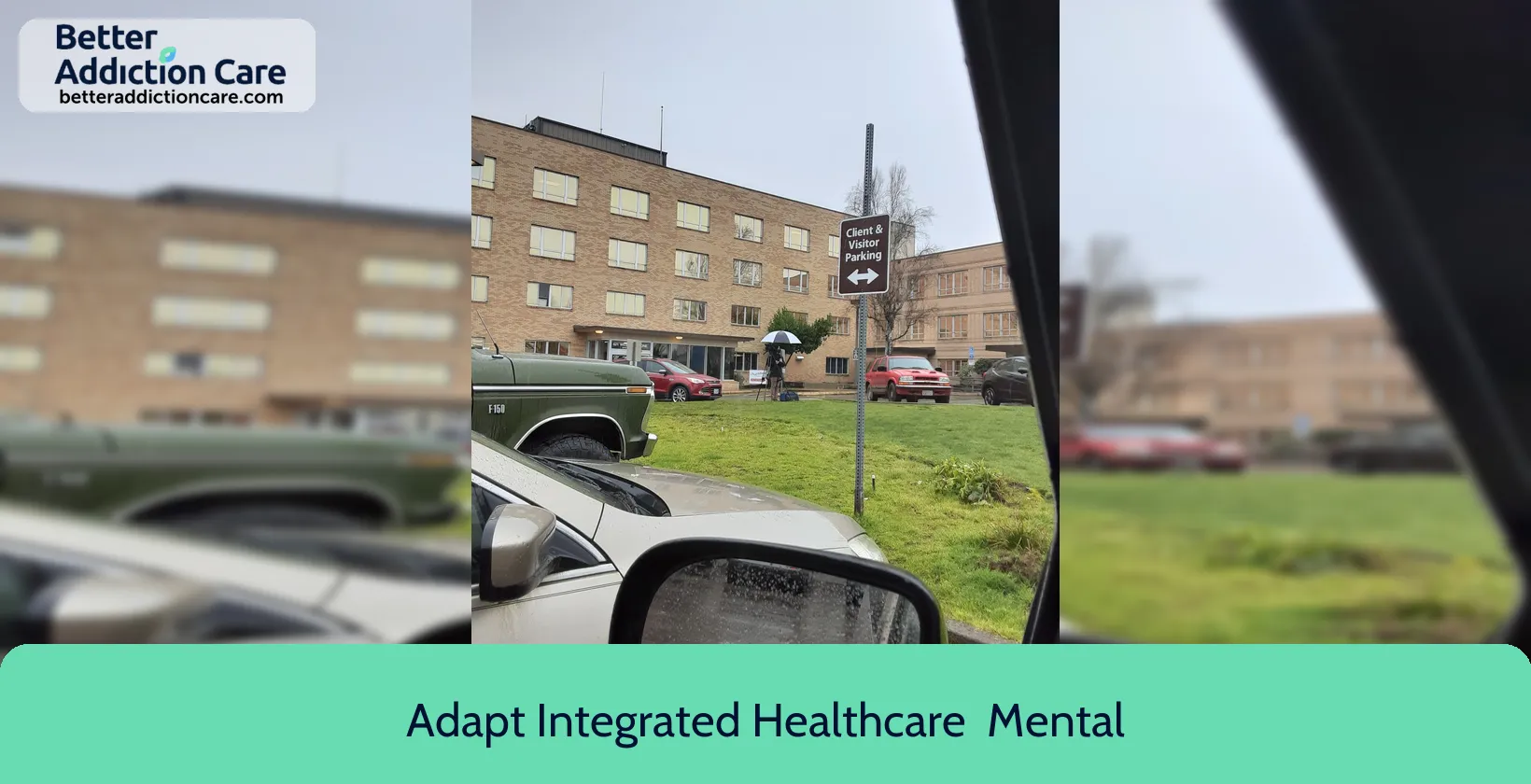
Overview
ADAPT - Deer Creek - Adolescent Treatment Center is a substance abuse treatment center for people seeking treatment near Douglas County. As part of their treatment modalities for recovery, ADAPT - Deer Creek - Adolescent Treatment Center provides substance use disorder counseling, trauma-related counseling, and smoking/vaping/tobacco cessation counseling during treatment. ADAPT - Deer Creek - Adolescent Treatment Center is located in Roseburg, Oregon, accepting cash or self-payment for treatment.
ADAPT - Deer Creek - Adolescent Treatment Center at a Glance
Payment Options
- Cash or self-payment
- Medicaid
- State-financed health insurance plan other than Medicaid
- Private health insurance
- Sliding fee scale (fee is based on income and other factors)
Assessments
- Screening for tobacco use
- Screening for mental disorders
- Comprehensive substance use assessment
Age Groups
- Adolescents
- Children/adolescents
- Young adults
- Adults
- Seniors
Ancillary Services
- Integrated primary care services
- Domestic violence services, including family or partner
- Early intervention for HIV
- Mental health services
- Social skills development
Highlights About ADAPT - Deer Creek - Adolescent Treatment Center
6.97/10
With an overall rating of 6.97/10, this facility has following balanced range of services. Alcohol Rehabilitation: 8.00/10, Drug Rehab and Detox: 6.00/10, Insurance and Payments: 6.67/10, Treatment Options: 7.21/10.-
Alcohol Rehabilitation 8.00
-
Treatment Options 7.21
-
Insurance and Payments 6.67
-
Drug Rehab and Detox 6.00
Accreditations
SAMHSA certification for opioid treatment program (OTP):
SAMHSA's Opioid Treatment Programs (OTP) accreditation is a prestigious recognition that signifies a program's compliance with stringent standards and guidelines established by the Substance Abuse and Mental Health Services Administration (SAMHSA). This accreditation demonstrates an OTP's commitment to providing high-quality, evidence-based care for individuals struggling with opioid use disorder (OUD). It serves as a trusted symbol of accountability and excellence, assuring patients, families, and communities that the OTP offers safe, effective, and comprehensive treatment options for OUD.
Treatment At ADAPT - Deer Creek - Adolescent Treatment Center
Treatment Conditions
- Alcoholism
- Substance use treatment
Care Levels
- Hospital inpatient treatment
- Long-term residential
- Halfway house
Treatment Modalities
- Substance use disorder counseling
- Trauma-related counseling
- Smoking/vaping/tobacco cessation counseling
- Group counseling
- Family counseling
Ancillary Services
Additional Services
- Pharmacotherapies administered during treatment
- Discharge Planning
- Drug or alcohol urine screening
Special Programs
- Clients with co-occurring mental and substance use disorders
- Clients who have experienced trauma
Get Help Now
Common Questions About ADAPT - Deer Creek - Adolescent Treatment Center
Contact Information
Other Facilities in Roseburg

7.56

7.64

7.80

7.16

6.68
DISCLAIMER: The facility name, logo and brand are the property and registered trademarks of Adapt Integrated Healthcare - Mental Healthcare, and are being used for identification and informational purposes only. Use of these names, logos and brands shall not imply endorsement. BetterAddictionCare.com is not affiliated with or sponsored by Adapt Integrated Healthcare - Mental Healthcare.
